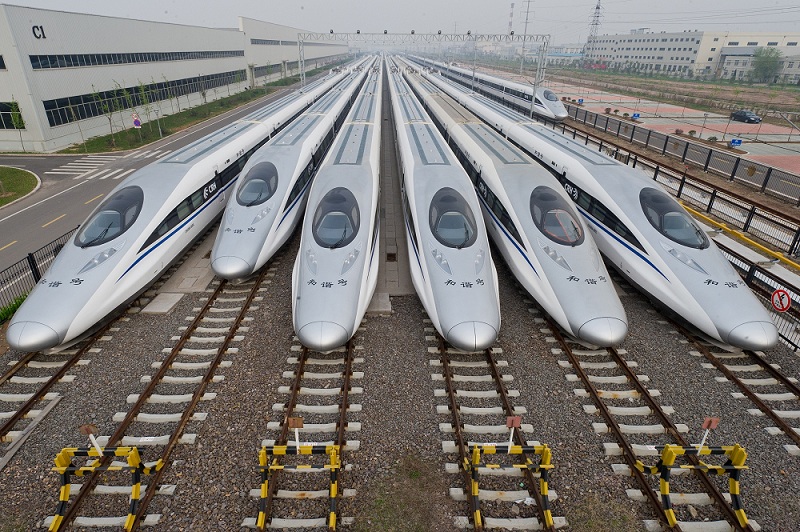
The European Commission has launched its first in-depth investigation under the Foreign Subsidies Regulation (FSR) to determine whether a Chinese state-owned firm submitted an unduly advantageous offer in a Bulgarian train procurement as the result of foreign subsidies. The European Union (EU) implemented the FSR in 2023 to ensure that recipients of foreign financial contributions do not gain an unfair advantage in EU procurement with bids below market prices or even below cost. This post considers the significance of this investigation of foreign subsidies in an EU procurement.
Under the Foreign Subsidies Regulation, firms that want to participate in large EU public tenders (estimated value exceeds €250 million) must disclose all financial contributions of at least €4 million received from foreign governments in the prior three years. On January 22, 2024, CRRC Qingdao Sifang Locomotive Co., Ltd., a subsidiary of CRRC Corporation, a Chinese state-owned entity, submitted the required notification. CRRC Corporation is the world's largest rolling stock manufacturer in terms of revenue. (Rolling stock includes locomotives and carriages used by railway operators, as well as subways, trams and other railway vehicles.)
The investigation relates to a public procurement initiated by Bulgaria's Ministry of Transport and Communications for 20 electric “push-pull” trains and their maintenance over 15 years. The procurement has an estimated value of €610 million.
After a preliminary review of of the Chinese firm’s notification, the Commission concluded there were sufficient indications that it had received a foreign subsidy that distorts the EU internal market and commenced the investigation on February 16, 2024. It must make a final decision by July 2, 2024 (110 working days after the firm’s notification).
During the in-depth investigation, the Commission will further assess the alleged foreign subsidies and establish whether they allowed CRRC Qingdao Sifang Locomotive to submit an unduly advantageous offer in the Bulgarian train procurement to the detriment of other participants in the procurement. At the end of its investigation, the Commission has three options. It may (i) accept commitments by the Chinese company to fully and effectively remedy the distortion, (ii) prohibit the award of the contract to the subsidized firm, or (iii) issue a no-objection decision if it finds its preliminary assessment was not confirmed or a distortion in the internal market was outweighed by positive effects.
The EU began consideration of a foreign subsidies regulation in 2020 with a Commission proposal in order to close a perceived regulatory gap . While subsidies granted by EU member states are subject to a rigorous EU state aid regime, subsidies by third countries that benefit foreign operators active in the EU were unregulated. In addition, the EU’s existing public procurement rules were not considered sufficient to address and remedy distortions caused by such subsidies.
The development of the FSR raised concerns, including the scope of the notification and the burden it imposes on foreign suppliers. There are also uncertainties relating to the FSR’s consistency with the EU’s obligations under the WTO Government Procurement Agreement (GPA) if a supplier from a GPA party were precluded from participating in an EU procurement where its bid was found to distort the EU market due to foreign subsidies.
The current EU investigation will not likely raise GPA issues. Even though Bulgaria’s Ministry of Transport is a covered entity under the GPA and the procurement is above the GPA threshold, China is not yet a party to the plurilateral agreement. Thus, it would not have any basis to challenge an exclusion of its supplier from the EU procurement.
As the first Commission investigation under the FSR, the Commission’s decision will be closely watched as to the type and scope of the foreign subsidy that triggered the investigation and how the EU assesses distortions of its internal market. When the Commission publishes its non-confidential version of its decision initiating the investigation in the Official Journal of the European Union, it may provide useful insight on these issues.
The Foreign Subsidies Regulation also applies to mergers and acquisitions.
Jean Heilman Grier
February 22, 2024
Related Posts
EU Foreign Subsidies Regulation & Procurement Obligations
2023 Developments in International Procurement

